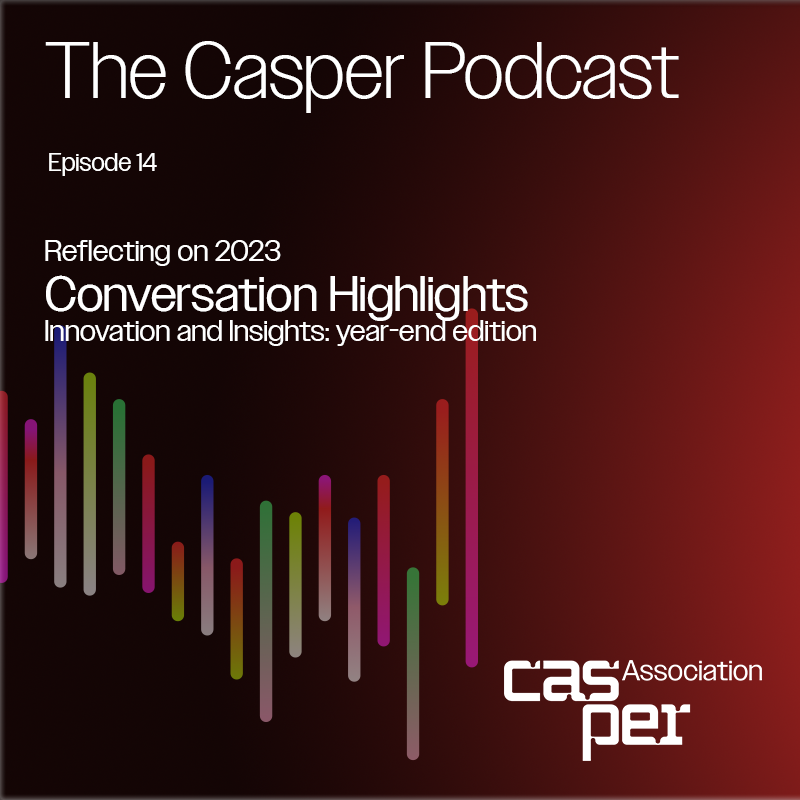Podcast marketing has rapidly gained traction as a powerful strategy for brands seeking to connect with engaged audiences. With the rise of podcasts, businesses now have a unique opportunity to reach niche markets. Unlike traditional advertising, podcast marketing allows brands to deliver messages in an intimate setting. This fosters trust and builds loyalty among listeners.
Many people turn to podcasts for information and entertainment. As a result, they become more receptive to brand messages within this context. By sponsoring or creating podcasts that align with their values, companies can effectively engage their target audience. This approach not only enhances brand visibility but also positions businesses as thought leaders in their industry.
Moreover, podcasts serve as an ideal platform for storytelling. Brands can share their narratives in a relatable way that resonates with listeners. This connection encourages audience members to engage further with the brand, whether through social media or website visits. In essence, podcasts act as a bridge between brands and consumers, fostering meaningful relationships.
As you explore how to market your podcast, consider the strategies that will best reach your audience. By leveraging the power of podcasting, you can transform your marketing efforts and tap into a dedicated listener base. Ultimately, this will help you achieve your business goals while connecting with consumers on a deeper level.
Understanding Podcast Marketing
Podcast marketing encompasses both creating and sponsoring podcasts that align with your brand’s values. This approach allows businesses to connect with their target audience in a meaningful way. Unlike traditional advertising, which can often feel intrusive, podcasts provide a more personal experience. Listeners tend to be more open to brand messages when they are delivered in this intimate setting.
Furthermore, the unique nature of podcasts fosters trust between brands and their audiences. When a trusted host shares a message, listeners are more likely to engage with the brand. This connection enhances brand loyalty and encourages repeat interactions. As a result, podcast marketing becomes an effective tool for building lasting relationships with consumers.
Additionally, podcasts allow for storytelling that resonates deeply with listeners. Brands can share their narratives in a way that feels authentic and relatable. This storytelling aspect not only captivates the audience but also encourages them to explore the brand further. Ultimately, this creates a sense of community around the podcast and the brand itself.
Podcast marketing is a powerful strategy for engaging audiences. By leveraging the intimate nature of podcasts, brands can effectively communicate their messages. This approach not only builds trust but also fosters loyalty among listeners. As you consider how to market your podcast, remember the potential of this dynamic medium to connect with your audience.

Why Use Podcasts as a Marketing Tool?
Engaged Audiences
Podcasts attract dedicated listeners who are genuinely interested in the content. This engaged audience is often more receptive to marketing messages. When listeners tune in, they are typically focused and attentive, creating an ideal environment for brands to share their messages. As a result, they are more likely to respond positively to brand promotions and take action after hearing an ad. Moreover, the connection formed during a podcast episode can lead to higher retention rates for advertising messages. This means that brands can effectively leverage this engagement to enhance their marketing strategies and drive conversions.
Niche Targeting
The podcasting landscape offers a vast array of topics, enabling brands to pinpoint specific audience segments. By identifying shows that align with their target demographics, businesses can tailor their marketing efforts more effectively. This niche targeting allows companies to create bespoke marketing messages that resonate with high-quality audiences. For example, a fitness brand might sponsor health and wellness podcasts to reach fitness enthusiasts directly. Consequently, brands can connect with potential customers who share similar interests and values. This targeted approach not only increases brand awareness but also fosters deeper connections with listeners, ultimately leading to higher engagement rates.
Authenticity
The conversational nature of podcasts facilitates authentic storytelling. This format helps brands connect on a personal level with their audience, making the marketing message feel less like an advertisement and more like a conversation. Unlike scripted advertisements, podcasts allow hosts to share genuine experiences and insights that resonate with listeners. This authenticity builds trust and encourages audiences to engage further with the brand. Additionally, when brands share relatable stories, it enhances emotional connections with the audience. For instance, when a host shares personal anecdotes about using a product or service, it creates a sense of relatability that can influence listener perceptions. Ultimately, this leads to stronger brand loyalty and a community of advocates who support the brand’s mission.
Moreover, the storytelling aspect of podcasts allows brands to convey complex ideas in an accessible manner. Listeners appreciate narratives that provide context and depth, making it easier for them to understand the value of a product or service. This method not only informs but also entertains, keeping audiences engaged throughout the episode. By harnessing the power of storytelling in podcast marketing, brands can create memorable experiences that encourage listeners to become loyal customers over time.
How to Market Your Podcast Effectively
1. Identify Your Target Audience
Understanding your target audience is crucial for effective podcast marketing. Start by identifying who your listeners are and what they care about. Conduct surveys or engage with your audience on social media to gather insights about their preferences. This information will help you tailor your content to meet their interests and needs. Additionally, consider creating listener personas to visualize your audience segments better. By knowing your audience, you can create episodes that resonate with them and keep them coming back for more.
Moreover, staying connected with your audience can provide ongoing feedback. Use polls or Q&A sessions to ask listeners about their favorite topics or what they want to hear next. This engagement not only helps in content creation but also fosters a sense of community. When listeners feel involved, they are more likely to share your podcast with others. Ultimately, understanding and connecting with your target audience lays a strong foundation for successful podcast marketing.
2. Create Compelling Content
Content is king in the podcasting world, so focus on developing episodes that provide real value. Aim for engaging stories, expert interviews, or actionable tips that your listeners can apply in their lives. For example, The Tim Ferriss Show features high-performing individuals sharing insights that listeners can implement. This approach not only captivates the audience but also establishes your podcast as a valuable resource.
Additionally, consider using storytelling techniques to enhance your episodes. Stories create emotional connections and make complex ideas more relatable. Start with a strong hook to grab attention and maintain interest throughout the episode. By crafting compelling content, you can keep listeners engaged and eager for future episodes.
3. Optimize for Discoverability
To maximize your podcast’s reach, ensure it is easily discoverable by potential listeners. Start by optimizing titles and descriptions with relevant keywords such as “podcast marketing,” “social media marketing podcast,” and “market podcast.” This will improve visibility in search results and attract more listeners interested in those topics.
Furthermore, submit your podcast to popular directories like Apple Podcasts and Spotify. These platforms are where many users search for new shows. By making your podcast accessible on these platforms, you increase the chances of reaching a broader audience. Regularly update your metadata and descriptions to reflect current trends and keywords, ensuring that your podcast remains relevant in search queries.
4. Leverage Social Media
Social media is a powerful tool for promoting your podcast to a wider audience. Share episode teasers, behind-the-scenes content, and updates on platforms where your target audience spends time. For instance, use Instagram Stories or Twitter threads to generate excitement before releasing new episodes. Engaging visuals and catchy captions can capture attention and encourage shares.
Additionally, interact with your audience on social media by responding to comments and messages. Create polls or ask questions related to upcoming episodes to foster engagement. For example, The Daily, a news podcast by The New York Times, effectively uses Twitter to share highlights and engage with its listeners. By leveraging social media effectively, you can build anticipation around new content and strengthen connections with your audience.
5. Foster Community Engagement
Building a community around your podcast enhances listener loyalty and engagement. Encourage interaction by inviting questions or feedback during episodes. You might also create dedicated spaces—like a Facebook group or Discord server—where fans can discuss episodes and share thoughts. This not only fosters deeper connections but also creates a sense of belonging among listeners.
Moreover, consider hosting live events or Q&A sessions where listeners can engage directly with you or guests. This interaction builds trust and encourages ongoing dialogue about the content you produce. When listeners feel like they are part of a community, they are more likely to promote the podcast within their networks, further expanding its reach. By fostering community engagement, you create loyal advocates who will support your podcast long-term.
Real-World Examples of Successful Podcast Marketing
Squarespace: Building Brand Awareness
Squarespace has effectively leveraged podcast sponsorships to enhance its brand visibility among potential customers in creative fields. By sponsoring popular design-related podcasts, they have positioned themselves as a leading solution for website building. This strategy allows Squarespace to reach artists and entrepreneurs who are actively seeking tools to establish their online presence. As a result, they have sponsored over 820 episodes across 78 podcasts in the last year alone, demonstrating their commitment to this marketing channel.
Moreover, Squarespace’s approach focuses on quality over quantity. They choose podcasts that align with their brand values and target audience. For instance, by partnering with shows that emphasize creativity and design, they effectively communicate their message to engaged listeners. This targeted sponsorship not only increases brand awareness but also fosters trust among potential customers. As listeners hear Squarespace ads from trusted hosts, they are more likely to consider the platform for their website needs.
Casper: Tapping into Listener Trust
Casper has adopted a unique approach to podcast marketing by sponsoring sleep-related shows. This strategy allows them to seamlessly integrate discussions about sleep health with their mattress offerings. By aligning their products with relevant content, Casper builds credibility and trust among listeners who value recommendations from trusted hosts. This authenticity enhances the effectiveness of their marketing efforts and encourages potential customers to explore their products further.
Additionally, Casper’s sponsorship strategy has proven effective in increasing brand awareness within a specific niche. By focusing on podcasts that discuss sleep topics, they reach an audience already interested in improving their sleep quality. This targeted approach not only drives sales but also establishes Casper as a thought leader in the sleep industry. As listeners associate Casper with quality sleep solutions, they are more likely to choose the brand when considering mattress options. Ultimately, this strategy exemplifies how effective podcast marketing can lead to meaningful connections with consumers.

Conclusion
Podcast marketing offers brands a remarkable chance to connect with engaged audiences in a genuine manner. By understanding your audience’s preferences, you can create content that resonates deeply with them. Additionally, optimizing for discoverability ensures that your podcast reaches those who are actively searching for relevant topics. As more consumers turn to podcasts for information and entertainment, now is the ideal time to explore how this medium can enhance your marketing strategy.
Moreover, leveraging social media plays a crucial role in promoting your podcast effectively. By sharing episode highlights, behind-the-scenes content, and engaging visuals, you can attract more listeners. Fostering community engagement also strengthens listener loyalty. When audiences feel involved in discussions and share their feedback, they become advocates for your podcast.
Implementing these strategies can significantly elevate your brand’s presence in the crowded podcast landscape. Learning from successful examples, such as Squarespace and Casper, can guide you in crafting effective marketing campaigns. By harnessing the power of podcast marketing, you can build lasting connections with your audience and drive meaningful engagement.
In summary, podcast marketing is not just about creating great audio content; it’s about building relationships and guiding listeners toward becoming loyal customers. As you embark on this journey, remember that consistency and authenticity are key. With dedication and the right strategies, your podcast can thrive and make a lasting impact in the industry.




